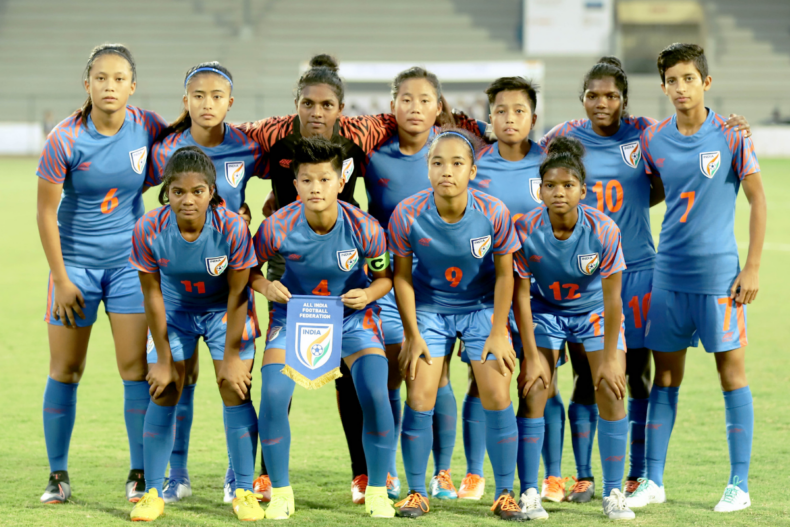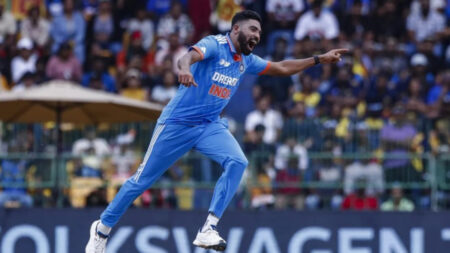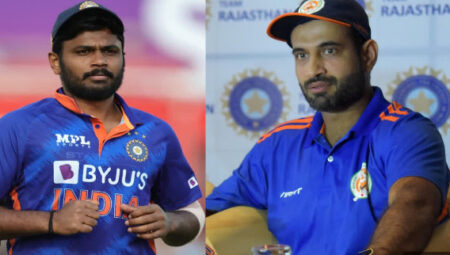Undue influences of third parties that go against FIFA rules
The All India Football Federation (AIFF) has been suspended by the world football governing body FIFA because of ‘undue influences of third parties that go against FIFA rules.
The suspension means that the FIFA U-17 Women’s World Cup 2022, scheduled in India from October 11-30, will no longer be held in India unless the suspension is lifted.
AIFF
The All India Football Federation (AIFF) is the governing body of football in India under the jurisdiction of the Ministry of Youth Affairs and Sports, the Government of India. Formed in 1935 founded at Darbhanga, the federation was one of the founding members of the Asian Football Confederation, the overseer of football in Asia.
The AIFF sanctions and runs all competitive football tournaments and leagues at a national level, namely the Indian Super League, I-League and Super Cup. The federation also indirectly manages local football competitions through state associations. The federation is also responsible for managing the Indian national football team, as well as the women’s team and the various youth national sides.
The AIFF is also part of the South Asian Football Federation, the organization that runs football in South Asia. The federation is currently based in Dwarka, Delhi.

FIFA Suspended AIFF
FIFA said the All India Football Association violated rules by allowing a third party like the Supreme Court-appointed Committee of Administrators to administer it.
“The Bureau of the FIFA Council has unanimously decided to suspend the All India Football Federation (AIFF) with immediate effect due to undue influence from third parties, which constitutes a serious violation of the FIFA Statutes,” FIFA said in a statement.
The suspension will be lifted once an order to set up a committee of administrators to assume the powers of the AIFF Executive Committee has been repealed and the AIFF administration regains full control of the AIFF’s daily affairs.
FIFA is assessing the next steps concerning the FIFA U-17 Women’s World Cup 2022 tournament and will refer the matter to the Bureau of the Council if and when necessary.
FIFA is in constant constructive contact with the Ministry of Youth Affairs and Sports in India and is hopeful that a positive outcome to the case may still be achieved,” FIFA added. The AIFF has been governed by a Supreme Court-appointed Committee of Administrators (CoA) since May 18.

The Supreme Court had relieved then-AIFF president Praful Patel and his executive committee of all responsibilities. Praful Patel had been the AIFF president for 12 years, having completed three four-year terms and was not eligible for any more terms under the laws laid down in India’s National Sports Code.
However, no new elections were held for the post of AIFF president, necessitating the Supreme Court to step in to appoint a CoA, which was working to finalize a new AIFF constitution and hold elections soon. The CoA even met with a joint FIFA-AFC delegation in June to ensure the process was being followed. However, disputes arose between the CoA and the state football associations regarding a few provisions of the final draft of the new AIFF constitution.
FIFA had also recommended that only 25 per cent of the electoral college should be made up of former players, while the CoA had recommended 36 players along with 36 state football association representatives – making it 50 per cent.
With no clarity regarding reducing the number of former players in the electoral college, FIFA deemed the CoA to be interfering as a third party in the running of the AIFF, resulting in suspension.
India’s Supreme Court will hold an urgent hearing on the matter on Wednesday, August 17. The global football governing body, FIFA, suspended the All India Football Federation (AIFF) on Monday, August 15 due to undue influence from third parties, which according to FIFA is a “serious violation of the FIFA Statutes”.

Specter hanging over AIFF
The spectre of a FIFA ban had been hanging over AIFF since 18 May when the Supreme Court forced out Praful Patel as AIFF president for not holding elections due in December 2020 and appointed a three-member Committee of Administrators (CoA), headed by former top court judge AR Dave, to manage the organisation’s affairs. The CoA also had to frame AIFF’s constitution in line with the National Sports Code and model guidelines.
As per FIFA Statutes, member federations should not be subject to legal and political interference in their respective countries.
Despite SC’s interference, FIFA did not ban India and instead sent a joint FIFA/Asian
Football Confederation’s (AFC) mission is to monitor the situation in Indian football. The mission ended its three-day visit on 23 June. The mission concluded that the “next steps should be the ratification of the AIFF Statutes in line with the FIFA/AFC principles of good governance and the holding of an Electoral Congress to choose the next AIFF leadership.”
A draft constitution of the AIFF prepared by the CoA was submitted to the Supreme Court on 16 July. The constitution provided for 50 per cent (36) eminent player representation in the electoral college of the AIFF and the executive council. The state units oppose certain clauses of the draft constitution and the matter reaches the SC.
Meanwhile, FIFA termed the decision to have an equal number of eminent players alongside the state association representatives in the electoral college as “not a prudent idea”. It also said that the governing body is okay with the executive committee having 25 per cent of former players as Co-opted members.
On 3 August, SC passed an interim order for AIFF to hold its election as soon as possible with the results being declared by 28 or 29 August.
It also approved forming an electoral college made up of 36 representatives of state football associations and 36 eminent former football players. On 6 August, FIFA threatened to suspend the AIFF due to a third-party “influence”.
On 15 August, once against FIFA informed the Indian sports ministry that it is in opposition to individual members’ inclusion in the electoral college for the upcoming AIFF elections. FIFA said that the individual members of the electoral college should come from state associations and other entities. On 16 August, FIFA officially suspended AIFF with “immediate effect due to undue influence from third parties, which constitutes a serious violation of the FIFA Statutes.”
FIFA’s decision on India to host the U-17 Women’s World Cup
As a suspended member, India cannot hold the World Cup that is to take place in October. “The suspension means that the FIFA U-17 Women’s World Cup 2022, scheduled to take place in India on 11-30 October 2022, cannot currently be held in India as planned. FIFA is assessing the next steps concerning the tournament and will refer the matter to the Bureau of the Council if and when necessary,” FIFA said in its statement. However, if the ban gets lifted in time for the tournament, India could still host the World Cup.
The suspension will be lifted
FIFA is very clear on what needs to be done for the AIFF suspension to be lifted. “The suspension will be lifted once an order to set up a committee of administrators to assume the powers of the AIFF Executive Committee has been repealed and the AIFF administration regains full control of the AIFF’s daily affairs,” FIFA pointed out. once AIFF adheres completely to the FIFA Statutes, the suspension will be lifted.
FIFA suspension impacts Indian football
The FIFA suspension will have a wide-ranging impact on Indian football. Apart from losing the hosting rights to U-17 Women’s World Cup, the national teams will not be able to play in international matches. Even Indian clubs will not be allowed to participate in continental tournaments.
The men’s team is scheduled to play Singapore and Vietnam next month but those matches are now uncertain. The senior women’s team cannot take part in the SAFF Women’s Championship next month, while Gokulam Kerala FC will not be able to take part in the AFC Women’s Club Championship next week.
FIFA
FIFA is an international governing body of association football, beach football and futsal. It was founded in 1904 to oversee international competition among the national associations of Belgium, Denmark, France, Germany, the Netherlands, Spain, Sweden and Switzerland. Headquartered in Zürich, Switzerland, its membership now comprises 211 national associations; Russia was suspended in 2022. These national associations must each also be members of one of the six regional confederations into which the world is divided: Africa, Asia, Europe, North & Central America and the Caribbean, Oceania and South America.














